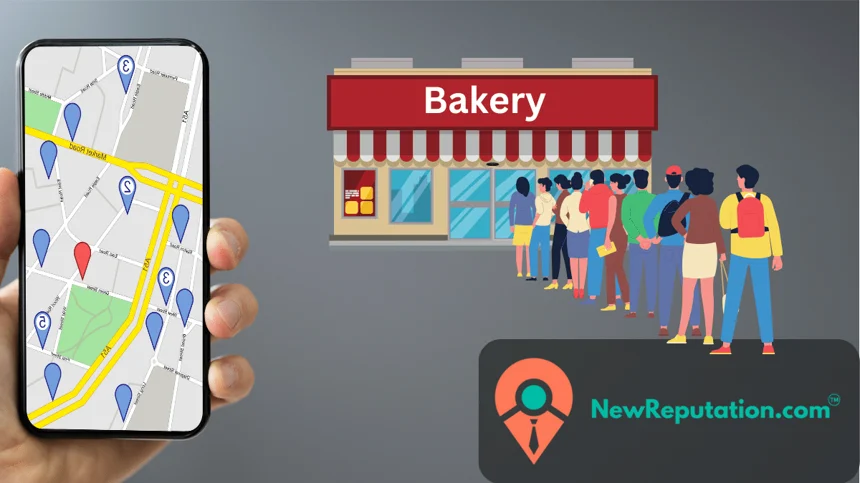Do you need help to get your website noticed in the crowded online marketplace? Do you want to attract more local customers and dominate Google’s local search results? Look no further!
In this comprehensive step-by-step guide, we will unveil the secrets to mastering the art of local SEO. Whether you’re a small business owner, a digital marketer, or an aspiring entrepreneur, understanding the intricacies of local search engine optimization is crucial in today’s competitive landscape.
From optimizing your website and Google My Business profile to leveraging online reviews and implementing effective local content strategies, we will equip you with the tools to skyrocket your online visibility and drive targeted traffic to your business. Get ready to unlock the power of local SEO and take your business to new heights!
Why local SEO is important for businesses
Consumers increasingly turn to search engines to find local businesses in today’s digital age. According to recent studies, 46% of all Google searches seek local information, and 76% of people who conduct a local search on their smartphone visit a physical store within 24 hours. These statistics highlight the importance of local SEO for businesses.
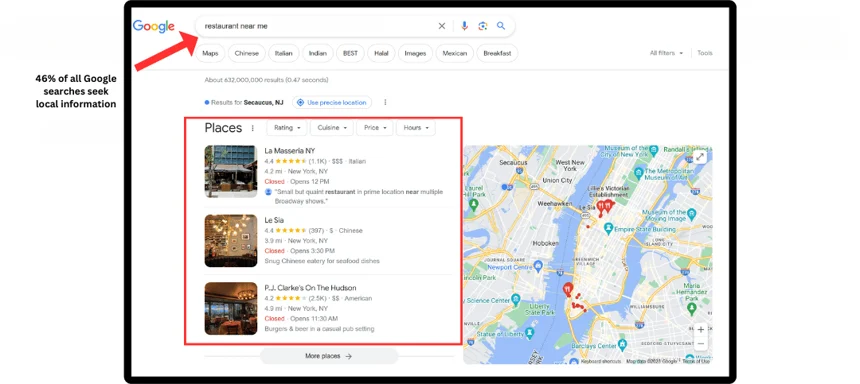
Local SEO allows you to optimize your website and online presence to appear in the search results when potential customers are looking for products or services in their local area. By targeting specific keywords and optimizing your website for local search, you can attract highly relevant traffic, increase your visibility, and ultimately drive more customers to your business.
To effectively harness the power of local SEO, it is essential to understand how Google’s local search results work and how you can optimize your website and online presence to rank higher. Let’s dive into the step-by-step process of mastering local SEO.
Understanding Google’s local search results
Google’s local search results are designed to provide users with the most relevant and accurate information based on their location. When a user searches for a local business, Google displays a map listing businesses that match the search query. These listings are known as the “Local Pack” or “Map Pack.”
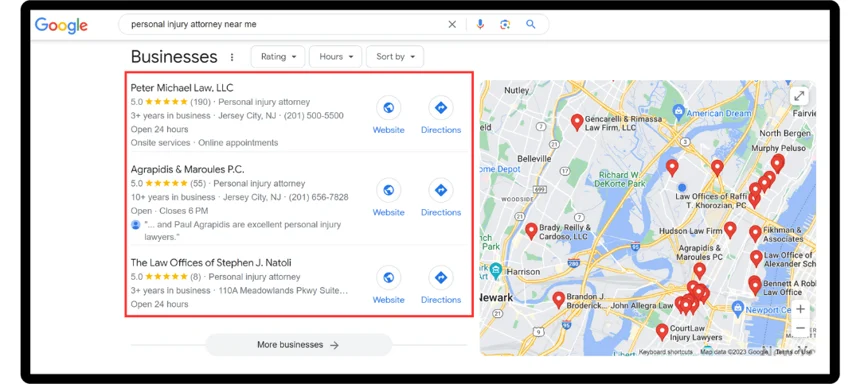
The Local Pack typically includes three businesses with their contact information, reviews, and a link to their website. Appearing in the Local Pack can significantly boost your online visibility and drive more targeted traffic to your website.
To ensure your business appears in the Local Pack, you must optimize your website and online presence for local search. This involves keyword research, website optimization, creating and optimizing your Google Business Profile listing, building local citations and online reviews, implementing local link-building strategies, creating localized content, and monitoring and tracking your local SEO efforts.
Let’s explore each step to help you dominate Google’s local search results.
Step 1: Keyword research for local SEO
Keyword research is the foundation of any successful SEO strategy, and local SEO is no exception. To attract local customers, you need to identify the keywords they are using when searching for products or services in your area.
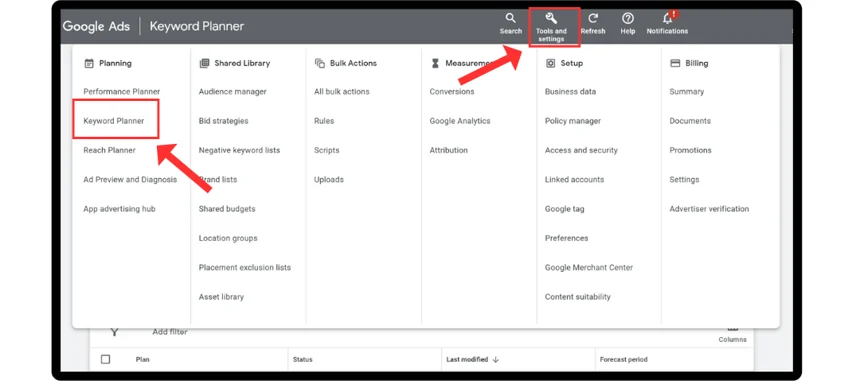
Start by brainstorming keywords and phrases relevant to your business and location. For example, if you own a bakery in New York City, some relevant keywords could be “bakery in NYC,” “best bakery near me,” or “artisanal bread in Manhattan.”
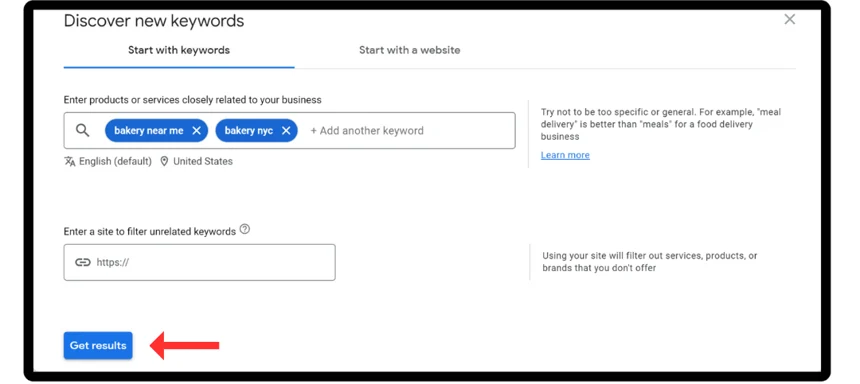
Once you have a list of potential keywords, use keyword research tools like Google Keyword Planner, SEMrush, or Ahrefs to gather data on search volume, competition, and potential traffic.
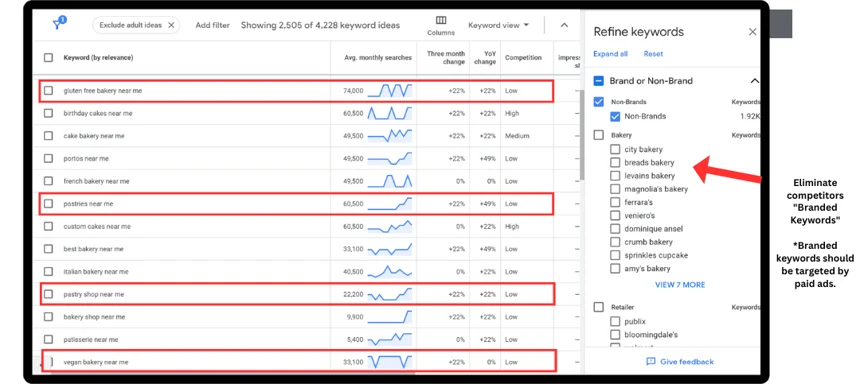
Look for keywords with a decent search volume and low competition to increase your chances of ranking higher in the search results.
After selecting your target keywords, strategically incorporate them into your website content, meta tags, headings, and URLs.
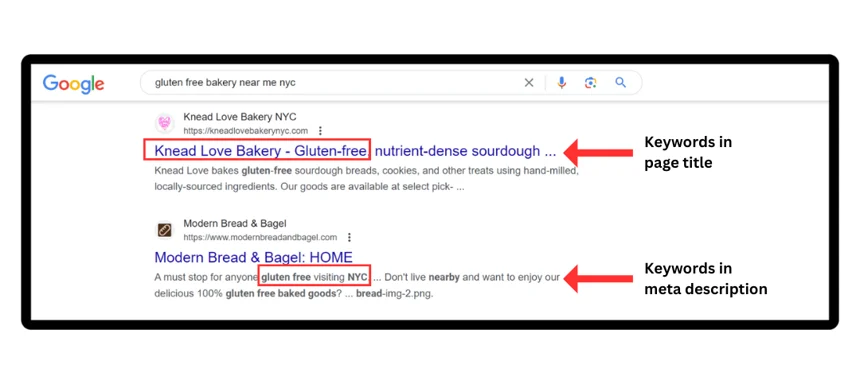
This will signal to search engines that your website is relevant to local searches and improve your chances of ranking higher.
Step 2: Optimizing your website for local search
Website optimization plays a crucial role in local SEO. Your website must be fast, user-friendly, and mobile-responsive to rank higher in local search results. Here are some key areas to focus on when optimizing your website for local search:
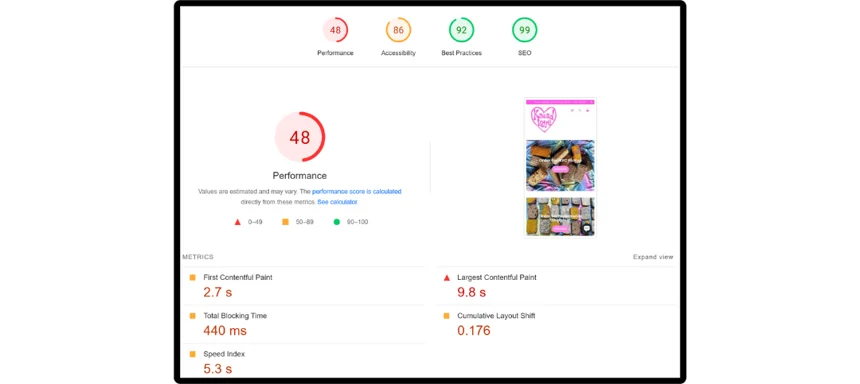
1. Page speed: Ensure your website loads quickly on desktop and mobile devices. Use tools like Google PageSpeed Insights to identify and fix any speed-related issues.
2. Mobile optimization: With more people using mobile devices to search for local businesses, it’s essential to have a mobile-friendly website. Optimize your website’s design and layout for mobile users, and ensure it is responsive across different screen sizes.
3. On-page optimization: Optimize your website’s meta tags, headings, and URLs to include your target keywords. Write informative and engaging content that is relevant to local searches. Include your business address, phone number, and hours of operation on your website to make it easy for customers to find and contact you.
4. Schema markup: Implement schema markup on your website to provide search engines with additional information about your business, such as your address, phone number, reviews, and opening hours. This helps search engines understand your content better and can improve your visibility in local search results.
By optimizing your website for local search, you increase your chances of appearing in the Local Pack and attracting more local customers.
Step 3: Create and optimize your Google My Business listing
Google My Business (GMB) is a free tool that allows you to manage your business information and appear in Google’s local search results. Recently, Google My Business has been updated and is now called Google Business Profile. Creating and optimizing your GBP listing is crucial for local SEO success.
To create your GBP listing, follow these steps:
1. Claim your business: Visit the Google Business Profile website and click the “Get Google Business Profile” button. Search for your business name and address to see if it already exists in the database. If it does, claim the listing as the owner. If not, create a new listing.
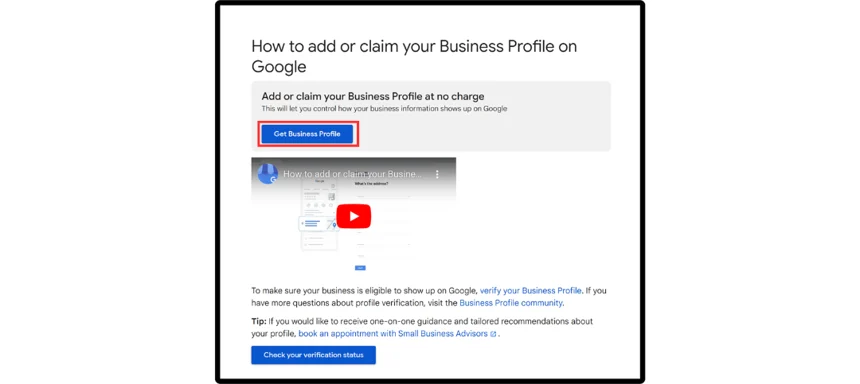
2. Provide accurate information: Fill out all the required fields, including your business name, address, phone number, website URL, category, and business hours. Ensure that your information is accurate and consistent across all online platforms.
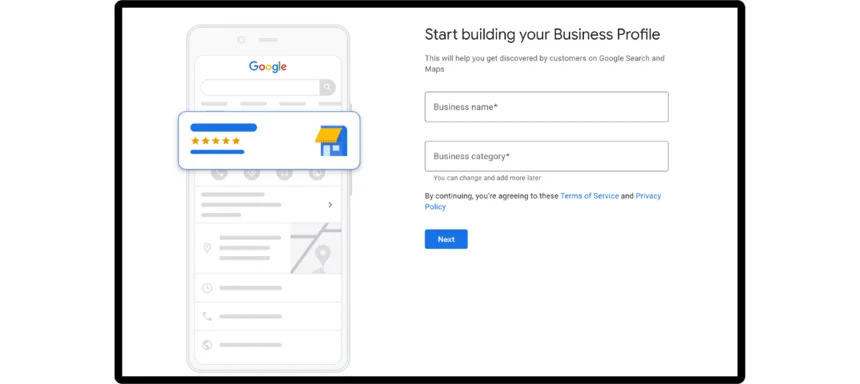
3. Verify your listing: Google will send you a verification code via mail or phone to confirm that you are the business owner. Service-based businesses, like contractors, will need to verify by video. Follow the instructions provided to complete the verification process.
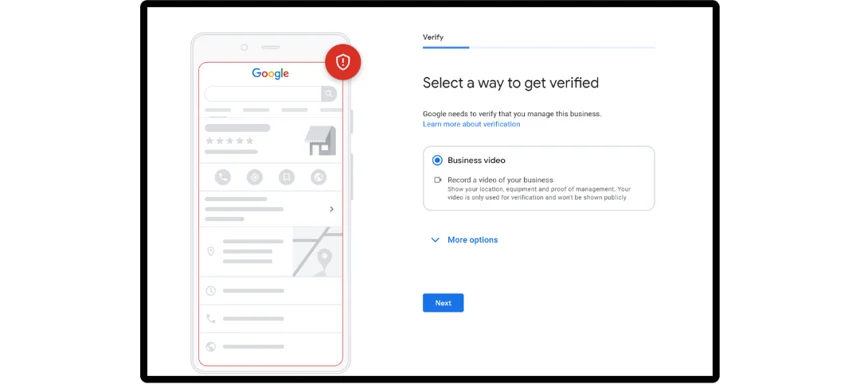
Once your GBP listing is verified, it’s time to optimize it for local search. Here are some tips to help you optimize your GBP listing:
1. Choose the right category: Select the most relevant category for your business. Be specific and choose the category that best describes your products or services.
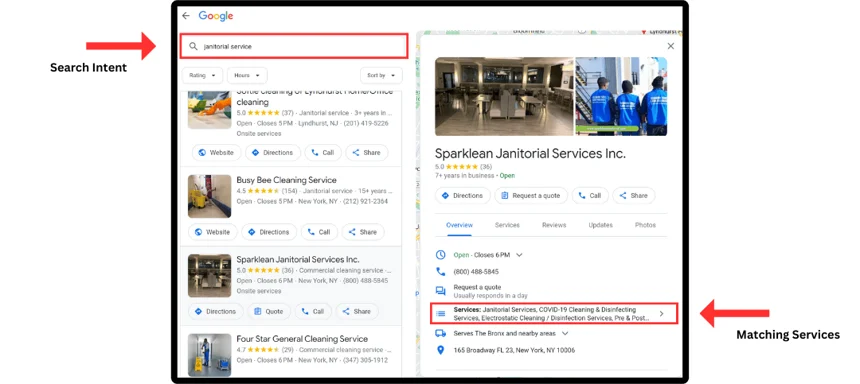
2. Add photos: Upload high-quality photos of your business, products, or services. This helps potential customers better understand what you offer and can increase engagement.
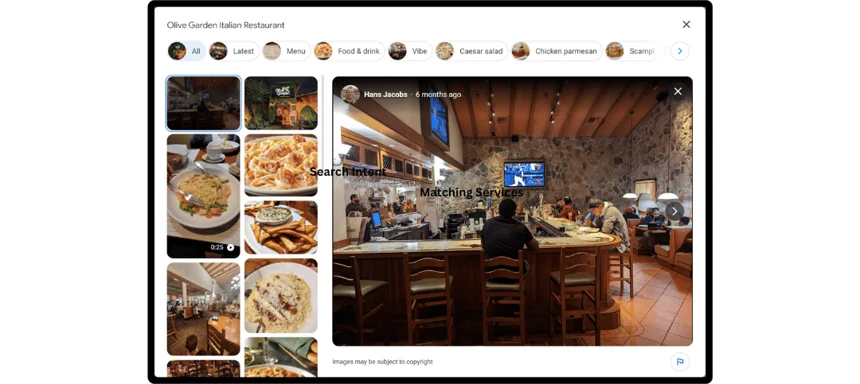
3. Encourage your customers to leave reviews on your GMB listing. Positive reviews improve your online reputation and increase your chances of appearing in the Local Pack.
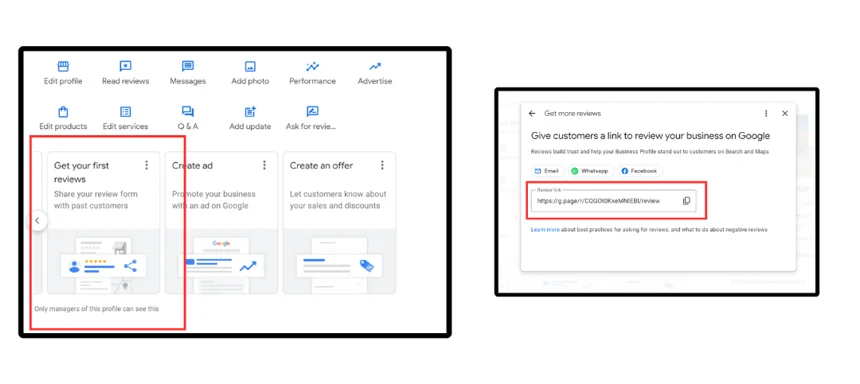
4. Respond to reviews: Monitor and respond to customer reviews promptly. Engaging with your customers shows that you value their feedback and can help build trust and loyalty.
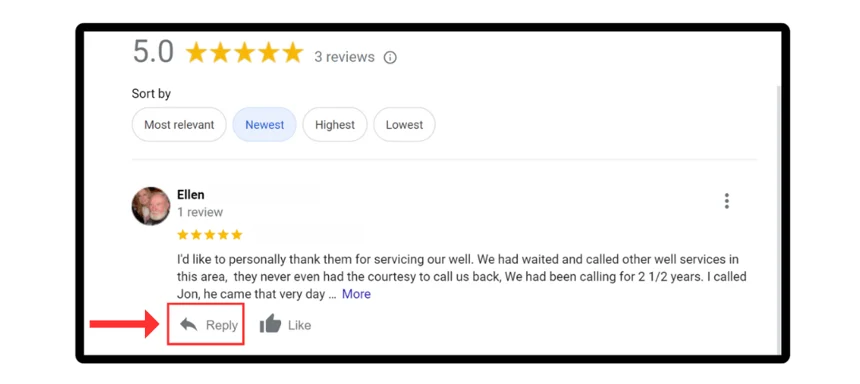
Creating and optimizing your GBP listing increases your chances of appearing in Google’s local search results and attracting more local customers.
Step 4: Building local citations and online reviews
Citations are online mentions of your business name, address, and phone number (NAP) on other websites, directories, and platforms. Building local citations helps search engines verify the accuracy of your business information and can improve your local search rankings.
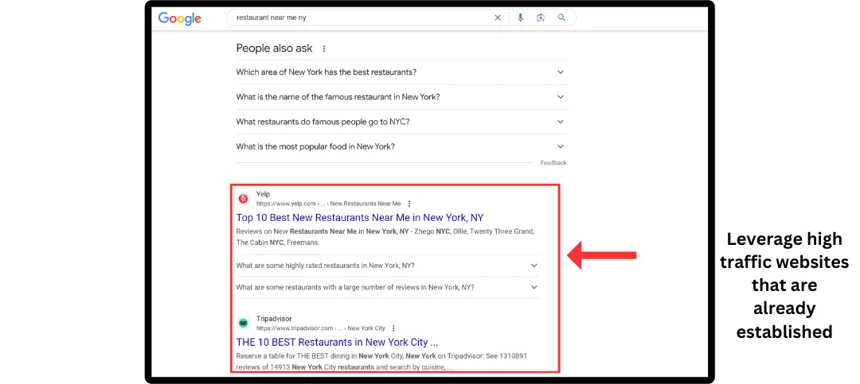
Here are some strategies to help you build local citations:
1. Submit your business to online directories: Submit your business to popular online directories like Yelp, Yellow Pages, and TripAdvisor. Ensure that your NAP information is consistent across all directories.
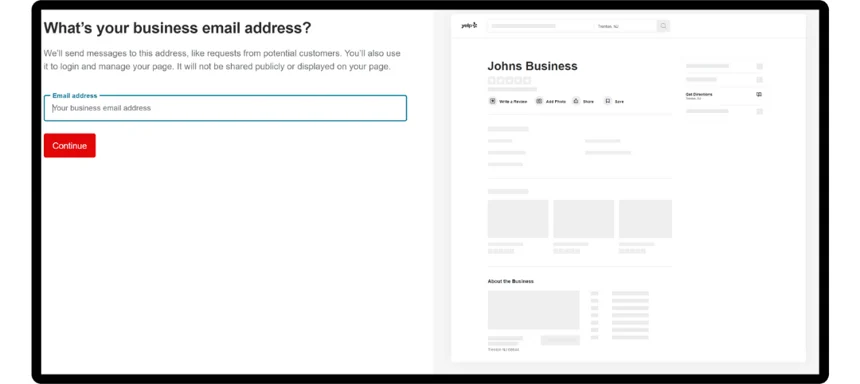
2. Claim and optimize industry-specific directories: Identify industry-specific directories relevant to your business and claim your listings. Optimize these listings by providing accurate and detailed information about your business.
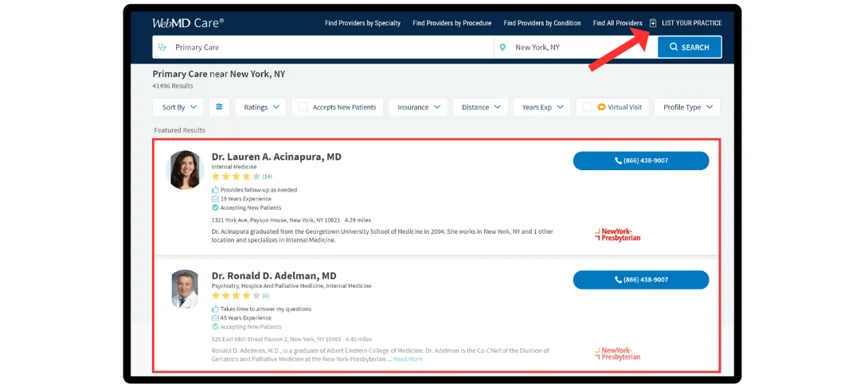
3. Leverage local partnerships: Collaborate with local businesses or organizations to cross-promote each other. This can include guest blogging, co-hosting events, or offering joint promotions. You can also join your local chamber of commerce. By doing so, you can get your business mentioned on other websites and increase your online visibility.
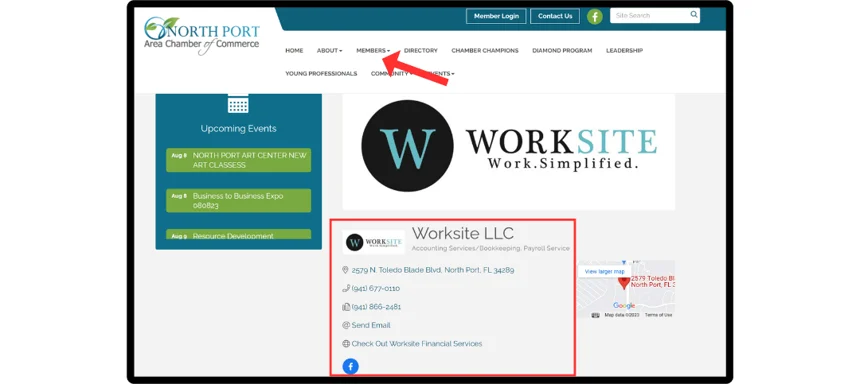
In addition to building local citations, online reviews play a significant role in local SEO. Positive reviews boost your online reputation and improve your chances of appearing in the Local Pack.
Encourage your customers to leave reviews on your GMB listing and respond to reviews promptly. This shows potential customers that you value their feedback and can help build trust and credibility.
Step 5: Local link-building strategies
Link building is an integral part of SEO, and local link building can significantly boost your local search rankings. Here are some strategies to help you build local links:
1. Partner with local businesses: Forge partnerships with other local companies and offer to exchange links. This can include linking to each other’s websites from your respective blog posts or resource pages.
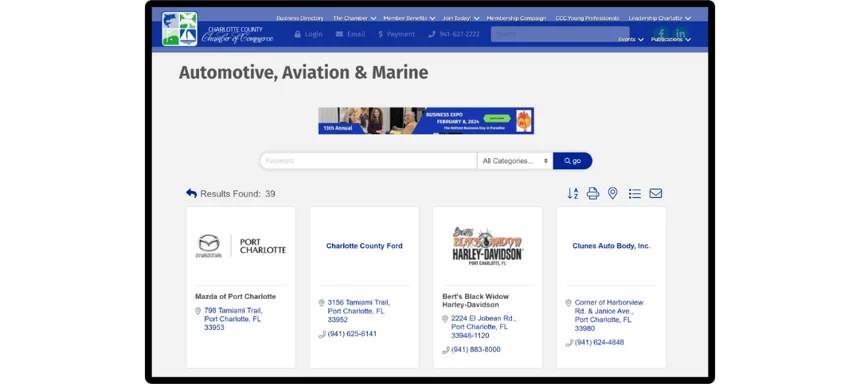
2. Sponsor local events or organizations: Sponsor local events, charities, or organizations and ask for a link to your website. This helps you build local links and enhances your brand’s visibility within the community.
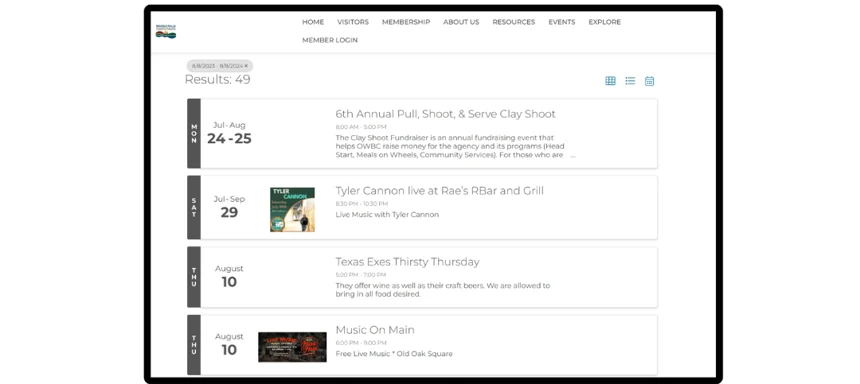
3. Create local resource pages: Create resource pages on your website that provide valuable information for local residents. This can include lists of local attractions, upcoming events, or recommendations for local services. Contact other local businesses and ask them to link to your resource page.
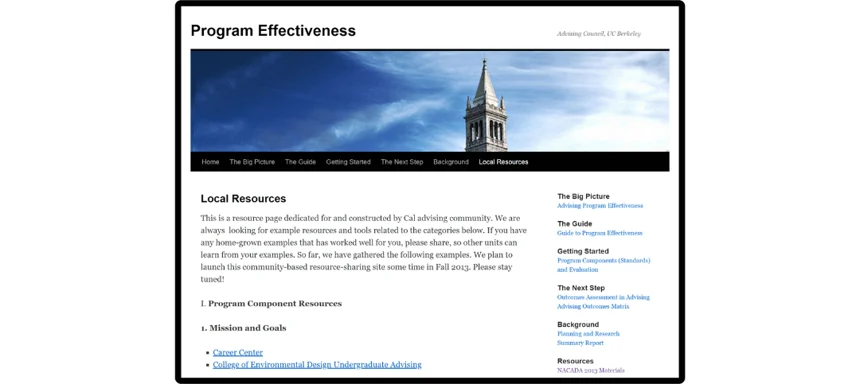
Remember, quality is more important than quantity regarding link building. Focus on building relevant and authoritative links from reputable websites within your local community.
Step 6: Creating localized content
Creating localized content is essential to attract local customers and improve your local search rankings. Here are some content strategies you can implement:
1. Local blog posts: Write posts tailored to your local audience. This can include local news, events, or tips and tricks related to your industry. Incorporate local keywords naturally into your content to improve your local search visibility.
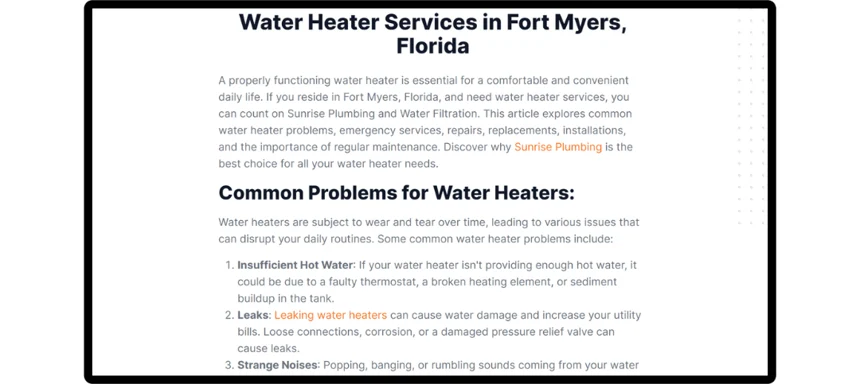
2. Location-specific landing pages: Create landing pages that target specific locations within your area. For example, if you offer janitorial services in multiple cities, create separate landing pages for each town and optimize them with relevant keywords.
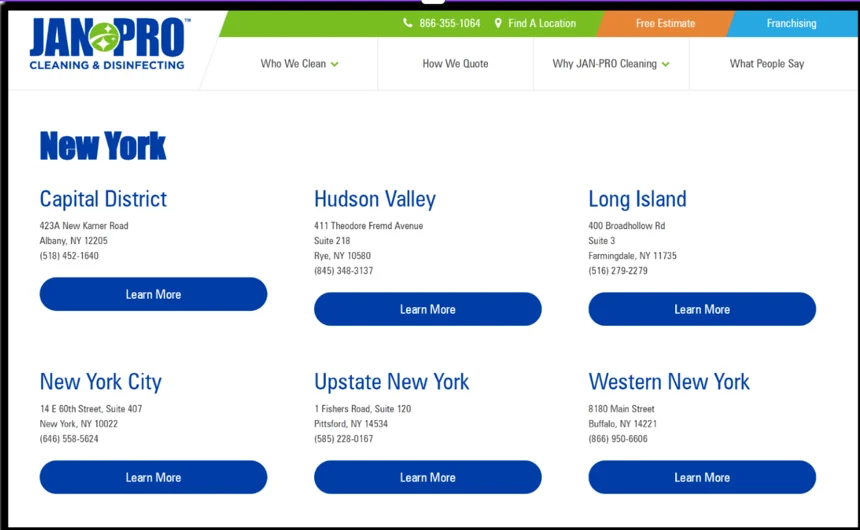
3. Customer success stories: Share success stories or case studies of local customers who have benefited from your products or services. This showcases your expertise and helps build trust and credibility within the local community.
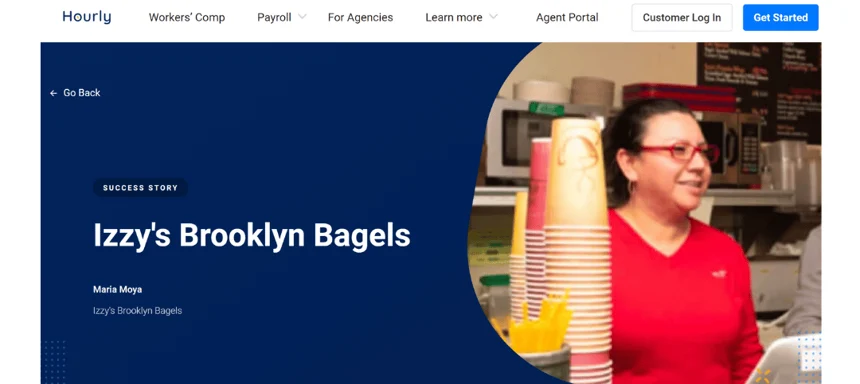
By creating localized content, you can establish yourself as a local authority and attract more local customers.
Step 7: Monitoring and tracking your local SEO efforts
Monitoring and tracking your local SEO efforts is crucial to ensure your strategies work effectively. Here are some key metrics and tools to help you monitor and track your local SEO efforts:
1. Google Analytics: Use Google Analytics to track website traffic, user behavior, and conversion rates. Set up specific goals and track their performance to measure the success of your local SEO campaigns.
2. Google Search Console: Monitor your website’s performance in Google’s search results using Google Search Console. Track keyword rankings, click-through rates, and search impressions to identify areas for improvement.
3. Rank tracking tools: Use rank tracking tools like SEMrush, Ahrefs, or Moz to monitor your website’s rankings for target keywords. Track your progress over time and adjust your local SEO strategies as needed.
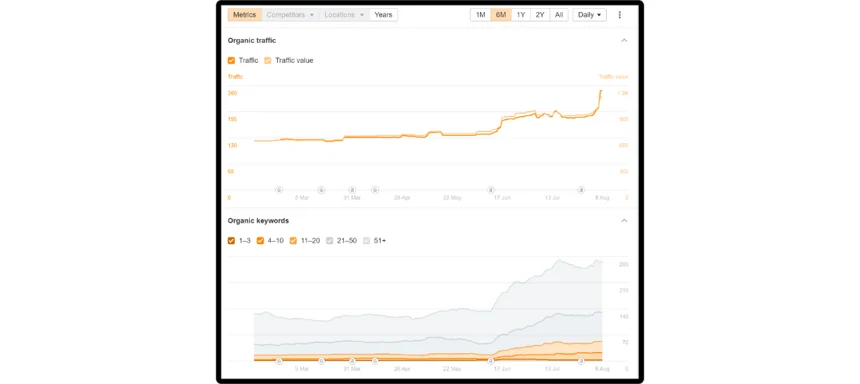
By monitoring and tracking your local SEO efforts, you can identify what’s working and what needs improvement, ultimately driving more targeted traffic to your business.
Local SEO tools and resources
To help you in your local SEO journey, here are some valuable tools and resources:
– Google Keyword Planner: A free tool that helps you research keywords and estimate their search volume.
– Google Business Profile: A free tool that allows you to manage your business information and appear in Google’s local search results.
– Google Analytics: A free tool that provides insights into website traffic, user behavior, and conversion rates.
– Google Search Console: A free tool that helps you monitor and optimize your website’s presence in Google’s search results.
– SEMrush: A comprehensive SEO tool that offers keyword research, rank tracking, and competitor analysis.
– Ahrefs: A powerful SEO tool that provides in-depth keyword research, backlink analysis, and site auditing.
– Moz: An all-in-one SEO tool that offers keyword research, link building, and rank tracking features.
– NewReputation: Online reputation management services delivering SEO, Online Reviews, and GBP Optimization.
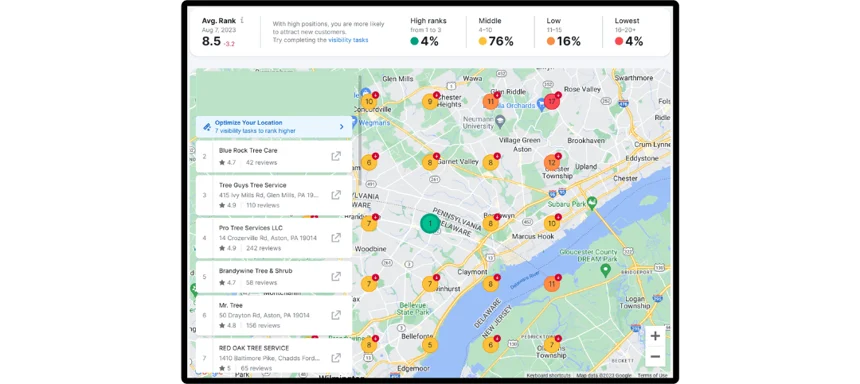
Explore these tools and resources to enhance your local SEO efforts and stay ahead of the competition.
Common local SEO mistakes to avoid
While mastering local SEO requires time and effort, it’s essential to avoid common mistakes that can hinder your progress. Here are some mistakes to watch out for:
1. Inconsistent NAP information: Ensure that your business name, address, and phone number are consistent across all online platforms, including your website, GBP listing, and online directories.
2. Ignoring online reviews: Online reviews play a crucial role in local SEO. Encourage your customers to leave reviews and respond to them promptly to build trust and credibility.
3. Neglecting website optimization: A slow, unresponsive, or poorly optimized website can negatively impact your local search rankings. Invest in website optimization to provide a seamless user experience.
4. Not tracking and analyzing data: Failing to monitor and track your local SEO efforts can lead to missed opportunities. Regularly analyze data and make data-driven decisions to optimize your strategies.
By avoiding these common mistakes, you can maximize your local SEO efforts and achieve better results.
Advanced Local SEO Strategies
Advanced local SEO strategies help your business stand out in a competitive online space. Once you’ve handled the basics, it’s time to go further. Adding schema markup to your website gives search engines more context, which can improve how your listings appear. Voice search optimization is also important. People are using voice search devices more often to find businesses nearby, so your content should match how people speak.
Make sure your Google My Business listing is complete and updated. This includes hours, photos, services, and categories. Local citations still matter too—your business name, address, and phone number should be consistent across directories. Tools like SEMrush Local can help you find citation gaps and fix them.
You should also invest in local PR opportunities. Getting featured in news outlets or blogs tied to your area builds authority. These mentions can help with local link building tactics and boost your visibility in local ranking factors. Pay attention to on-page signals by including location-based keywords in your content, headings, and meta descriptions.
Lastly, use review markup to highlight your best ratings in search results. All of these efforts combine to make your business more discoverable, especially when people use voice search or look for services near them.
Conclusion
Mastering the art of local SEO is crucial for businesses looking to attract more local customers and dominate Google’s local search results. Following this step-by-step guide and implementing effective local SEO strategies can increase your online visibility, drive targeted traffic to your website, and ultimately grow your business.
Remember to conduct thorough keyword research, optimize your website for local search, create and optimize your Google My Business listing, build local citations and online reviews, implement local link-building strategies, create localized content, and monitor and track your local SEO efforts.
Invest time and effort in mastering local SEO, and you will reap the rewards of increased online visibility, higher search rankings, and a steady stream of local customers. Get ready to take your business to new heights with the power of local SEO!
The NewReputation Help Center discusses brand reputation, online PR, search engine marketing, content marketing, and much more.

